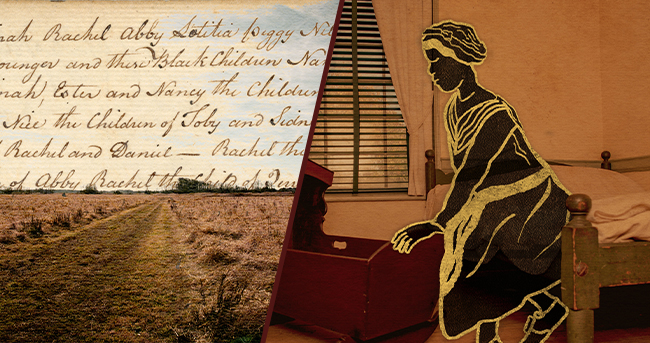Enhanced digital spreadsheet offers redesign of Plantation Stories Project

Technology offers a way to share the stories of those erased from history
The Delaware Division of Historical and Cultural Affairs has updated an integral part of the Plantation Stories Project by launching a new, enhanced spreadsheet. The recently published digital tool offers the public a new platform where they can learn about the enslaved, indentured, freedom-seeking and free Black people who lived, worked and died at the John Dickinson Plantation, in the plantation’s vicinity, and on other Dickinson family landholdings.
The enhanced spreadsheet highlights the research and informed conclusions from a larger project that is still in the works, a years-long research effort that began with only five primary documents. More primary sources are now included, as a result of the research team’s continued efforts. Previously, the data collected by dedicated historians through this project was only available online through a basic database of names. Additional primary sources will be added as the research team continues its work into the future.
Explore the Plantation Stories Project enhanced database
Over time, hundreds of people were enslaved on land over which the Dickinson family claimed ownership. Although the people John Dickinson enslaved were freed in 1786, the plantation continued to be a place of enslavement as tenant farmers continued to enslave people and exploit them for their labor. As the Plantation Stories Project continues to expand, connections to modern descendants of the people featured in the project may be discovered.
“The people whose stories we’ve set out to find were marginalized and intentionally exploited, all while their histories were pushed aside, erased, or not recorded in the first place. We’re working to remedy that, as much as possible,” said Annie Fenimore, the project’s lead researcher. “I’m excited to share the new format for the Plantation Stories Project with the public. It’s a much more user-friendly way to experience the project.”
The project team is working to find, record and share the stories of individuals while recognizing their humanity and agency. The research team also recognizes that the sources for the project are generally from white, colonizer-enslaver perspectives and works to see past that perspective or flip it. The complex and thorough research is part of the division’s “Ending Erasure: Recognizing African Americans in the Cultural Landscape” initiative. The enhanced spreadsheet, as well as a new website that is still in development, have been made possible thanks to a partnership with Delaware’s Government Information Center. Check back soon for more updates!
To learn more about people who lived and labored at the plantation, please visit the John Dickinson Plantation. To view the Plantation Stories Project or share your family stories or information with state historians, call 302-739-3277, visit the updated online database or email JDPmuseum@delaware.gov.


